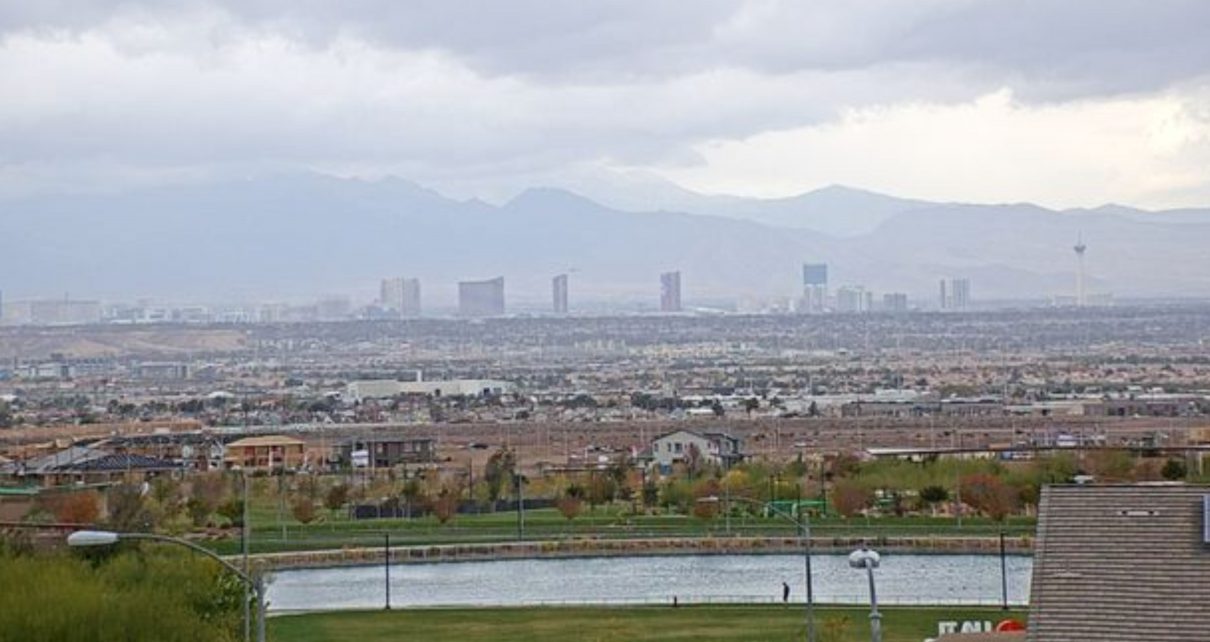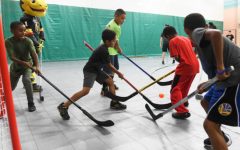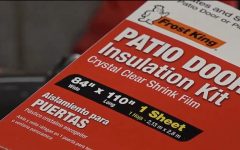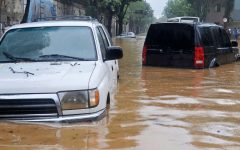
Officials From Clark County Share Advice How to Deal With the Upcoming Winter Weather
By TheNevadaGlobeStaff, December 13, 2022 11:27 am
LAS VEGAS, Nev. (702 Times, NV Globe) – With temperatures anticipated to drop below freezing this week, county authorities are giving some advice and measures to help Las Vegas residents keep safe and warm.
The county has offered the following advice to valley residents:
Winterize Your Home:
- Insulate walls and attic, caulk, and weather-strip doors and windows.
- Protect exposed pipes by wrapping them in insulation or layers of newspaper and then covering them with plastic to keep out moisture.
- Turn off your outdoor sprinkler system. Wrap or cover hose bibs and exposed elements of your sprinkler system such as irrigation boxes and valves. Visit the hardware store to buy appropriate insulation materials.
- If freezing or near-freezing temperatures are forecasted, run the water circulation system in your pool to prevent pipes from freezing. Cover exposed pool pipes.
- Maintain fences, locks and other drowning-prevention barriers around pools to protect children and pets.
- Follow manufacturer’s guidelines for maintaining pools when not in use during the winter months.
Safely Heat Your Home:
- Operate space heaters according to manufacturer’s guidelines. Do not use extension cords with space heaters and unplug space heaters when not in use.
- Do not use gas appliances such as ranges or ovens or clothes dryers to heat your home.
- Maintain heating equipment and chimneys by having them cleaned and inspected each year.
- Fireplaces should have open dampers to allow smoke and gasses to escape safely. Ashes should be discarded into water pails and soaked several hours before discarding.
- Never use a portable generator, grill, camp stove or other gasoline, propane or natural gas or charcoal-burning devices inside your home. Always locate these units in outside areas away from doors, windows, and vents that could allow carbon monoxide to come indoors.
- Install a carbon monoxide (CO) alarm in your home that meets safety standards. Battery-operated CO alarms or plug-in CO alarms with battery backup are available.
- Never use candles as a heating or light source. Have flashlights ready for use during a power outage.
Avoid Frostbite by dressing warmly:
- When outside in cold temperatures, dress to stay dry and warm. Wear warm, loose-fitting, lightweight clothing in layers. Clothing made of wool or synthetic fibers such as polypropylene offers more insulation than cotton. Outer garments should be tightly-woven, water repellent and have a hood.
- Seek medical attention if you see signs of frostbite or hypothermia. Symptoms of frostbite include the loss of feeling and white or pale extremities. Signs of hypothermia include uncontrollable shivering, slurred speech, drowsiness and exhaustion.
Pets & Cold Weather:
- If temperatures are below 50 degrees in Clark County, dogs and cats kept outdoors should have additional clean bedding or other protection to keep them warm.
- Keep an eye on water bowls to make sure drinking water does not freeze.
- Bathe your pets as little as possible during cold spells. Washing too often can remove essential oils and increase the chance of developing dry, flaky skin.
- Don’t shave your dog down to the skin in winter.
- In general, if it’s too cold for you, it’s probably too cold for household pets to be kept outdoors for long periods of time, especially if they are used to being indoors.
Winter Driving and Car Tips, as well as Mount Charleston Visitation:
- Use extreme caution while driving in winter storms with ice and snow. Drive slowly, accelerate gradually, and allow for greater braking distances.
- Take time to clean off any snow and ice from vehicle windows to increase visibility.
- Always check weather and road conditions before traveling. For road closures, chain requirements and other information in Nevada, call 5-1-1 or 1-877-NV-ROADS (1-877-687-6237) or visit www.nvroads.com.
- Drive with a full tank of gas. Carry a cell phone and emergency supplies such as an ice scraper, tire chains, jumper cable and first aid kit.
- If you are stuck in a vehicle in snow or cold weather, stay in your vehicle and wait for help. Run the engine about 10 minutes each hour to keep warm. Beware of carbon monoxide build up inside the car.
- In case of a roadway emergency or to report a serious accident, dial *NHP (*647).
- Visit gomtcharleston.com/snow-season/ for information about roads, weather and safety tips when visiting the Spring Mountains National Recreation Area during the winter months. The popularity of Lee and Kyle Canyons when snow is present can create public safety hazards. Visitors may experience temporary road closures along Nevada State Routes 156 (Lee Canyon Road), 157 (Kyle Canyon Road), and 158 (Deer Creek Road) due to traffic congestion and road conditions.
A temperature of 32 degrees or less in the desert, according to the county, can harm plants and freeze pipes, leading them to explode.
The Building Department in Clark County advises people to winterize their homes and pools each autumn to avoid pipes from freezing when nightly temperatures drop.
Cold temperatures can also cause frostbite and hypothermia.
Conditions in the Southern Nevada valley may be tracked by clicking here.
The fire department also provides general cold weather recommendations, which may be accessed by going here.
Credits: News3LV
Copyright 2022 702 Times, NV Globe. All rights reserved.
- Poolside Tragedy or Preventable Loss? Nevada Family Grieves Young Boy After Drowning - June 30, 2025
- Nearly 200 New Laws Hit Nevadans Starting July 1 - June 30, 2025
- Young Life Lost in Wrong-Way I-15 Collision - June 30, 2025




